Preview The Orchid Show: Mr. Flower Fantastic's Concrete Jungle
Get a sneak peek of the New York Botanical Garden's exquisite new exhibition!


A holdout building is a structure that has defied development, whether by necessity or by spite, and forced a creative architectural solution to be built around it. These structures can be found all over New York City, most famously at Rockefeller Center and at Macy’s flagship store in Herald Square. While out in Manhattan this week, Untapped New York’s founder Michelle Young came across an intriguing holdout right on the border of Morningside Heights and Harlem, a historic brownstone encircled on three sides by a new development. How did this structure survive?
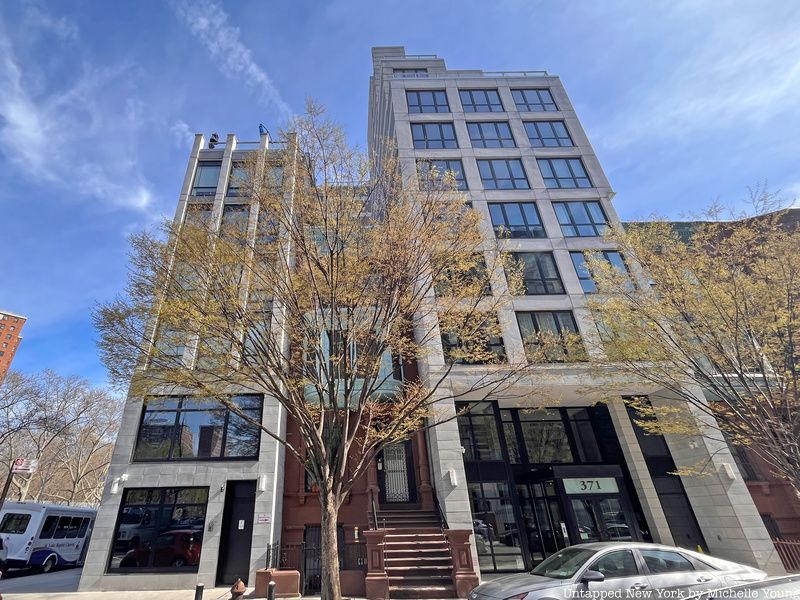
The late 19th-century brownstone and the development that rings it can be found on the corner of West 123rd Street and Morningside Avenue. The new development, 99 Morningside, curiously wraps around the brownstone on three sides, giving the building a backward “F” shape. Rising 11 stories, the 22-unit condominium building designed by Ariel Aufgang of Aufgang Architects dwarfs the historic townhouse.
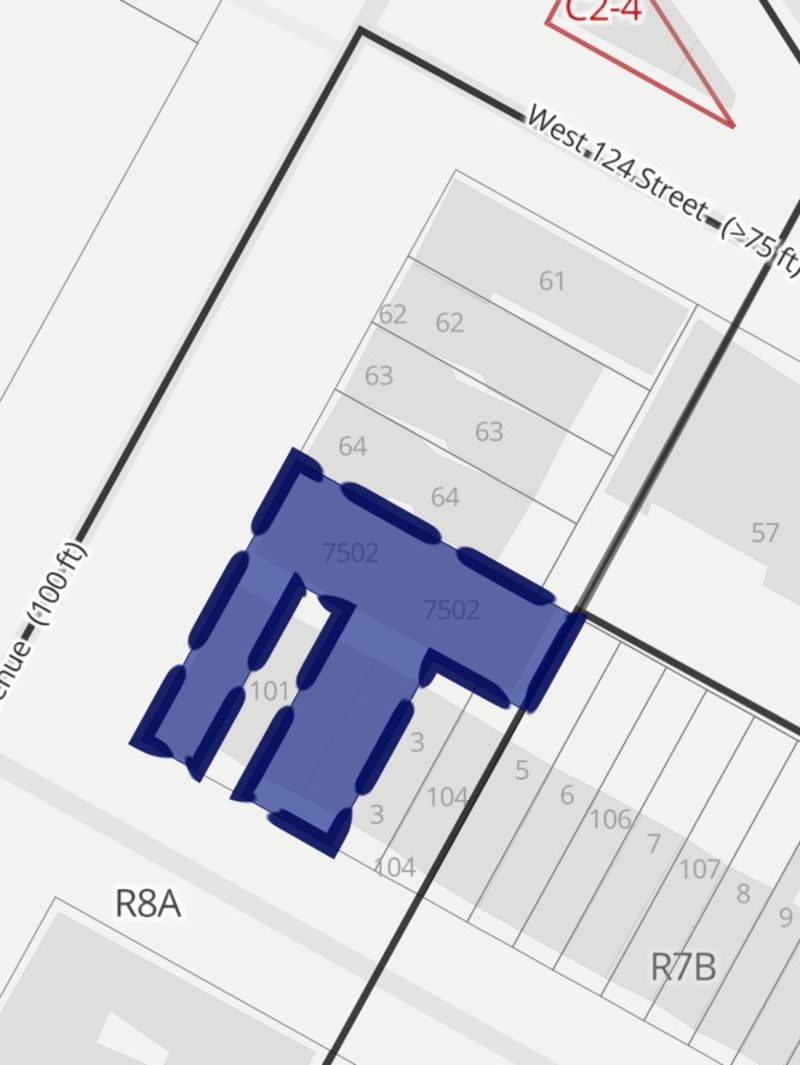
The holdout brownstone at 373 West 123rd Street was purchased by Dr. Tracy Butler and her husband Mark Silberberg in 1999. They have lived in the three-story home with their three sons ever since, according to the New York Times. When Azimuth Development Group, the developer behind 99 Morningside, came knocking in 2013, Butler and Silberberg were open to negotiations.
Azimuth had purchased two neighboring brownstones at 369 and 371 West 123rd Street for $1.85 million each. Those were demolished in 2015, according to YIMBY. There were no landmark protections for the buildings, which sit just a few blocks outside of the Morningside Heights Historic District which covers West 109th Street to West 119th Street and Riverside Drive to Amsterdam Avenue.
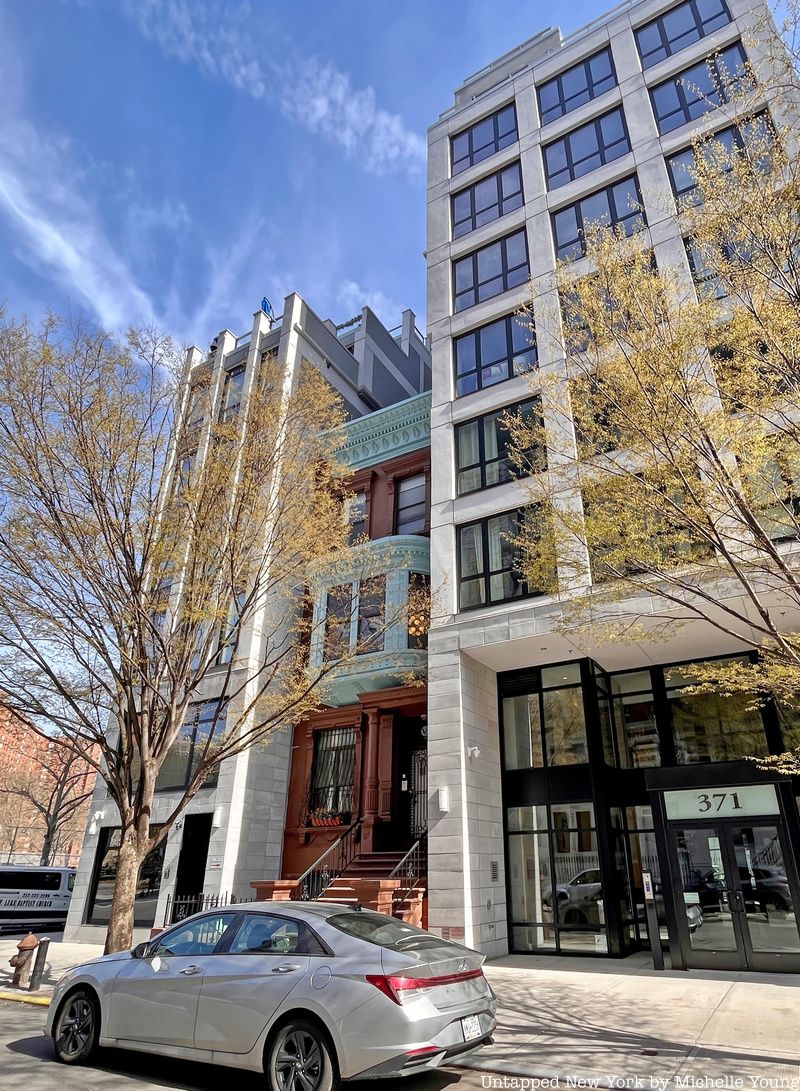
The development group also made a deal with the neighboring St. Luke Baptist Church for $5 million. Butler and Silberg were offered $1.85 for their home, but they turned down the offer. Wanting to stay in their neighborhood, the family negotiated with Azimuth to move into a nearby renovated brownstone. After a year of back and forth, no banker could be found to back the plan, and that deal fell through. The family decided to just stay put.
Unlike in most holdout situations, which can be hostile, the family seems to have had a fairly good relationship with the development group. They sold the air rights above their home and even rented out space in their building for the group to use as offices. Still, neighbors mourned the loss of the buildings that were demolished to make way for the new development.
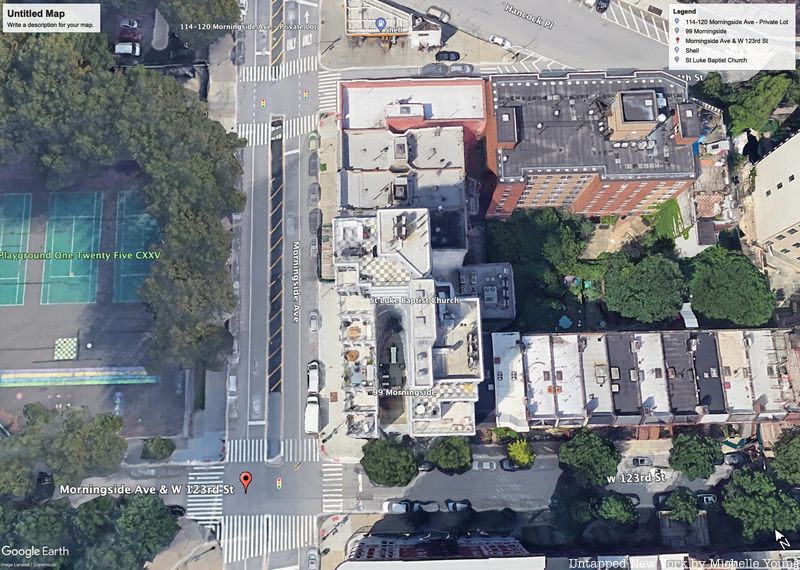
“Most people on the block were quite surprised after the old church was torn down and the townhouse was left standing,” neighbor Eddie Portnoy told Untapped New York, “and then to see the new construction engulf it was so striking. I used to talk to the people in the brownstones across the street and everyone lamented the situation.“
“I’ve long been fascinated by hold-outs and always document them when I see them, all over the world,” says Young. “My in-laws live a block away from this townhouse and I’ve been watching the construction around it regularly over the last few years. I’m impressed at the fortitude of this family to stand for what they believe in.” New Yorkers love to champion a holdout. Reaction to a photo of the holdout posted to Twitter by Young garnered messages of support such as “Rooting for them!” and “Extreme! props.”
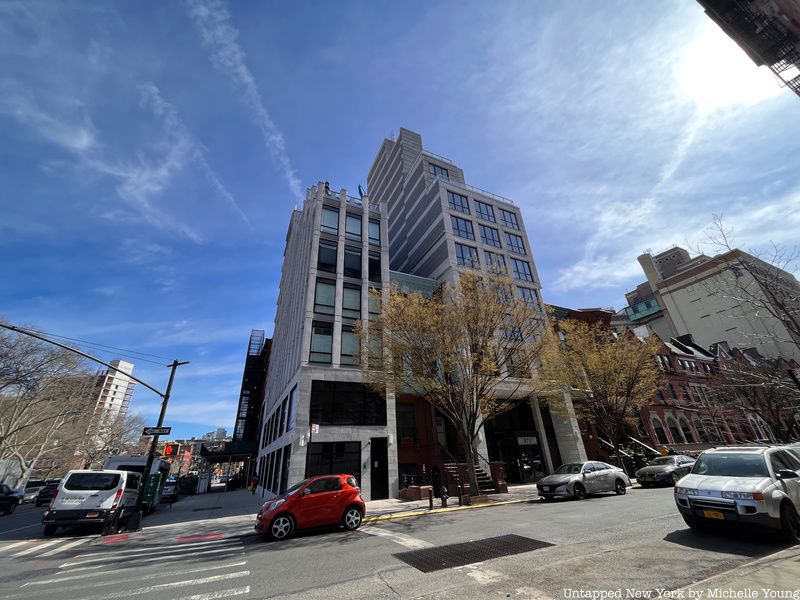
An astute 5-year-old, when shown the lot map of the development and hold-out building, commented “Well that’s a little bit normal right?” In an ever-growing metropolis like New York City, where space is at a premium, it is normal to see the old and new navigate unique ways to coexist. “Holding out leaves a permanent reminder to the public of what came before,” says Young, “and hopefully my viral tweet of this house raises awareness about the ongoing need for preservation of our historic buildings in New York City.”
Next, check out 10 Holdout Buildings in NYC
Subscribe to our newsletter